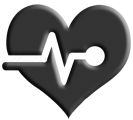Eating a well-balanced diet is essential for maintaining good health and overall well-being. However, with the abundance of conflicting information about nutrition, it can be challenging to develop healthy food habits and nutrition plans. Educational resources play a crucial role in providing individuals with the knowledge and guidance needed to make informed decisions about their diet. Here, we will explore various educational resources that can help individuals develop healthy food habits and nutrition plans.
1. Government Websites and Publications
Government health departments and organizations often provide reliable and evidence-based nutritional guidelines and resources. Websites such as the Centers for Disease Control and Prevention (CDC) and the National Institutes of Health (NIH) offer a wealth of information on dietary recommendations, healthy eating tips, and meal planning guides.
2. Nutrition and Dietetics Organizations
Professional organizations such as the Academy of Nutrition and Dietetics offer valuable resources, including educational materials, articles, and webinars on various aspects of nutrition. These resources are especially beneficial for individuals seeking guidance from qualified experts in the field of nutrition and dietetics.
3. Educational Apps and Online Platforms
In the digital age, numerous educational apps and online platforms are dedicated to promoting healthy eating and nutrition education. These resources often provide interactive tools, meal tracking features, and personalized nutrition plans tailored to individual needs.
4. Community Workshops and Seminars
Local community centers, health clinics, and wellness organizations frequently organize workshops and seminars on nutrition and healthy eating. These events offer the opportunity for individuals to engage with nutrition experts, ask questions, and gain practical knowledge about meal preparation and balanced nutrition.
5. Diet and Nutrition Books
Well-researched and reputable books authored by nutritionists, dietitians, and health experts are valuable educational resources for developing healthy food habits and nutrition plans. These books often delve into nutritional science, meal planning, and the role of specific foods in fostering good health.
6. University Extension Programs
Many universities offer extension programs that focus on nutrition education and public health. These programs often provide access to workshops, online courses, and informational materials that can empower individuals to make informed choices about their diet and nutritional intake.
Educational resources are essential for empowering individuals to develop healthy food habits and nutrition plans. By leveraging resources such as government publications, professional organizations, educational apps, community workshops, informative books, and university extension programs, individuals can gain the knowledge and skills necessary to make positive changes in their dietary habits. These resources not only provide valuable information but also promote a deeper understanding of the connection between food and overall health, ultimately supporting individuals in their pursuit of a balanced and nutritious diet.





